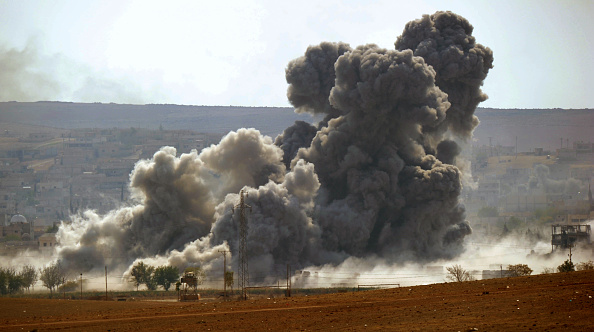Previously undisclosed Snowden documents detail how eavesdropping, British intelligence guide U.S. drone strikes


British intelligence documents provided to The New York Times and The Guardian by former National Security Agency contractor Edward Snowden reveal telling details about a 2012 drone air strike in Yemen and offer clues to how the U.S. determines terrorist targets. Additionally, the documents appear to show that the N.S.A. has worked in Pakistan and Yemen with the British Government Communications Headquarters, or G.C.H.Q.
The British agency appears to have supplied intelligence for a U.S. strike in Yemen that killed Khadim Usamah, a doctor linked to al Qaeda. Usamah reportedly "pioneered using surgically planted explosives" and was thought to be working with the al Qaeda explosives expert behind the thwarted attack on a Detroit-bound plane in 2009 by "underwear bomber" Umar Farouk Abdulmutallab. British intelligence believed Usamah was recruited "to experiment with implanting a bomb with no metal parts into the abdomen of a suicide bomber," The New York Times reports.
Additionally, the British documents detail how signal intelligence and eavesdropping play central roles in determining terrorist suspects, as well as where they might be hiding. However, the documents also expose flaws in the program. Smartphones, for example, can be easily tracked by the N.S.A. or the G.C.H.Q., but can also be passed from person to person, leading to mistakes when identifying suspects.
The Week
Escape your echo chamber. Get the facts behind the news, plus analysis from multiple perspectives.

Sign up for The Week's Free Newsletters
From our morning news briefing to a weekly Good News Newsletter, get the best of The Week delivered directly to your inbox.
From our morning news briefing to a weekly Good News Newsletter, get the best of The Week delivered directly to your inbox.
Agencies also try to determine their suspect's B.D.L., or "bed-down location," when planning a strike, in addition to confirming a target's voice and appearance. Still, there are mistakes: In April, a strike killed two Western aid workers held in Pakistan by al Qaeda; intelligence officials had no idea about their presence.
Press officers for the N.S.A. and the C.I.A. declined to comment to The New York Times.
A free daily email with the biggest news stories of the day – and the best features from TheWeek.com
Jeva Lange was the executive editor at TheWeek.com. She formerly served as The Week's deputy editor and culture critic. She is also a contributor to Screen Slate, and her writing has appeared in The New York Daily News, The Awl, Vice, and Gothamist, among other publications. Jeva lives in New York City. Follow her on Twitter.
-
 Russia’s ‘weird’ campaign to boost its birth rate
Russia’s ‘weird’ campaign to boost its birth rateUnder the Radar Demographic crisis spurs lawmakers to take increasingly desperate measures
-
 Could smaller cars bring down vehicle prices?
Could smaller cars bring down vehicle prices?Today’s Big Question Trump seems to think so, but experts aren’t so sure
-
 2025’s most notable new albums
2025’s most notable new albumsThe Week Recommends These were some of the finest releases of the past year
-
 Nobody seems surprised Wagner's Prigozhin died under suspicious circumstances
Nobody seems surprised Wagner's Prigozhin died under suspicious circumstancesSpeed Read
-
 Western mountain climbers allegedly left Pakistani porter to die on K2
Western mountain climbers allegedly left Pakistani porter to die on K2Speed Read
-
 'Circular saw blades' divide controversial Rio Grande buoys installed by Texas governor
'Circular saw blades' divide controversial Rio Grande buoys installed by Texas governorSpeed Read
-
 Los Angeles city workers stage 1-day walkout over labor conditions
Los Angeles city workers stage 1-day walkout over labor conditionsSpeed Read
-
 Mega Millions jackpot climbs to an estimated $1.55 billion
Mega Millions jackpot climbs to an estimated $1.55 billionSpeed Read
-
 Bangladesh dealing with worst dengue fever outbreak on record
Bangladesh dealing with worst dengue fever outbreak on recordSpeed Read
-
 Glacial outburst flooding in Juneau destroys homes
Glacial outburst flooding in Juneau destroys homesSpeed Read
-
 Scotland seeking 'monster hunters' to search for fabled Loch Ness creature
Scotland seeking 'monster hunters' to search for fabled Loch Ness creatureSpeed Read
